Good afternoon friends! Anyone who uses cosmetics understands perfectly well that their long shelf life requires the presence of preservatives (parabens). Otherwise, pathogenic microorganisms, mold, and various bacteria multiply, and no self-respecting cosmetic brand can allow this. We have to resort to the use of certain parabens, since similar preservatives have not yet been invented today. Let's find out what parabens are in cosmetics and how they can harm us?
Parabens - what are they?
Parabens are a number of chemical components used in the cosmetics industry, medical preparations, and less commonly in the food industry. They have antibacterial and antifungal properties and are important for extending the shelf life of various products that require preservatives. In scientific terms, parabens are a series of esters of para-hydroxybenzoic acid. This acid can be found in natural components, and parabens are exclusively chemical derivatives. Any cosmetic product contains a water base and various herbal additives in the form of oils, esters, and extracts. Their long-term storage after opening the package exposes the product to the rapid proliferation of bacteria, as a result of which it becomes unusable. In order for the products to have the proper appearance and retain their declared properties for a long time, parabens are added to them in order to prevent the growth of bacteria. Otherwise, their absence would have a detrimental effect on the condition of our skin, nails and hair. One thing is for sure, they are not toxic, but their negative side has not yet been fully identified, which is probably why there is a skeptical attitude towards them.
How to determine the presence of parabens in cosmetic products
This couldn't be easier; just look at the ingredients listed on the label of your products. Some components of cosmetic products are designated on the labels by the letter E with a specific digital value. For example: E214-ethylparaben, E216-propylparaben, E218-methylparaben, butylparaben, benzylparaben, isopropylparaben, isobutylparaben.
It is necessary to understand that it is impossible to detect all preservatives in one product at once. Which one is used depends on what the product is intended for. The lowest percentage of parabens is found in decorative cosmetics. The greatest difference is between products with oily and liquid textures. You may be surprised, but the presence of parabens is in all of these products:
- In shampoos, hair styling products
- In shower gels
- Men's cosmetics. Aftershave, foams, gels
- Various creams
- Liquid soap
- Toothpastes
- Eau de toilette, perfume
- Children's cosmetics
- Decorative cosmetics
- Medicinal products
The presence of parabens has been noticed not only in our cosmetics industry; countries in Europe, Asia and America similarly use them in their cosmetic products.
Positive aspects of parabens
Despite all the controversy about their dangers, they are currently among the most effective preservatives.
- Their use significantly increases the shelf life of cosmetics, medicines and food products while maintaining all useful qualities and appearance.
- More often, preservatives do not provoke allergic outbreaks and are calmly accepted by the body.
- Due to the low price of the preservative, the final product has an affordable price with high quality products.
Harm or benefit of parabens in cosmetics, their effect on the body
Many researchers ask this question, but, unfortunately, it is not possible to get a concrete answer. Why are parabens dangerous in cosmetics? There is an assumption that they tend to accumulate in the body, negatively affecting hormonal levels, and can lead to serious diseases. It's all about preservatives, similar to the female hormone estrogen. And excess estrogen negatively affects some people, especially women during pregnancy. A high level of estrogen can provoke disturbances in the development of the fetus and disruptions in further reproductive activity.
With a large accumulation of preservatives in the body, the risk of breast, uterine and testicular cancer in men increases.
Paraben preservatives have the ability to increase the negative effects of the sun. They affect DNA molecules, causing the skin to age too quickly. As a result of applying care products, the opposite effect is obtained.
Allergic reactions to them are rare, but no one completely excludes them. Therefore, although in isolated cases, there is a possibility of occurrence.
A high proportion of guilt regarding their presence and harm to health relates to deodorants. This mistrust of them was caused by a number of studies in which traces of parabens were identified in the analysis of breast cancer tumors. The cause of preservatives entering the body was supposedly deodorants. Later, a refutation immediately arises: the composition of deodorants does not contain a preservative, therefore, does not require parabens. As they say: “How many people, so many opinions.” Some really refute the harm of parabens, others are persistently confident in their negative impact, and are looking for an alternative to them.
Alternative to synthetic parabens
Cosmetic manufacturers have long been looking for a replacement for synthetic parabens. But unfortunately their attempts do not produce positive results.
Even the composition of decorative cosmetics includes parabens; at the moment this is the only effective remedy that can prevent the proliferation of pathogenic bacteria and is suitable in all respects. It is especially beneficial to use from the point of view of price interests.
Any cosmetics, one way or another, require preservatives. Whether they are natural or synthetic depends on the manufacturer. Nature has not deprived us and has offered several alternative natural preservatives, for example: extract from grapefruit seeds, birch leaves, pine bark, tea tree oil, eucalyptus oil, propolis and seaweed, fatty alcohol or alcohol. The most common is grapefruit extract, but its downside is its high cost, and naturally affects the high price of the final product. There is also a possibility of individual intolerance, which sometimes provokes allergic reactions. And no matter how much we praise natural preservatives, they also have their negative sides. In addition to allergic reactions, the skin can react negatively to essential oils or alcohol components, causing excessive dryness and causing a deterioration in its appearance.
Considering parabens, in this case they are suitable even for people with sensitive skin, and have very rarely been seen to cause negative reactions.
If natural preservatives are used in cosmetics, their shelf life does not exceed two or three weeks, exclusively in the refrigerator.
The high popularity of using parabens is explained by their low cost and effectiveness. At least this is a better option than previously used for these purposes, even more harmful formaldehyde preservatives. Evidence of this is science, which does not stand still, and there is a possibility of the invention of more advanced and safe preservatives.
Children's cosmetics - the danger of parabens
Unfortunately, children's cosmetics are no exception to the rule regarding paraben content. The preservatives used in the products affect the hormonal system of children. The use of creams with parabens negatively affects the health of boys, testosterone levels decrease. Children's bodies are more susceptible to the effects of carcinogens due to their low body weight. Because of this, you should be doubly careful when choosing children's products in order to protect your baby from exposure to harmful additives.
Are there cosmetics without parabens?
Numerous controversies and speculations surrounding the effects of parabens on the body prompted cosmetics manufacturers to find a way out of this situation. As a result, cosmetic products labeled “free-paraben” began to appear on store shelves like mushrooms. This inscription says that the product does not contain parabens. Can this be trusted?
After some thought, the producers cunningly resolved the situation. In fact, everything is much simpler than it seems. All they had to do was replace the names of these parabens with others, and as a result, everything remained in its place. For example, they replaced methylparaben with methyl paraoxybenzoate, ethylparaben-ethyl paraoxybenzoate, etc. These are the transformations with the disappearance of parabens. After all, in fact, the shelf life of the products has not changed, therefore, the composition of preservatives remains the same. And since no other analogues have yet been invented, pay careful attention to the composition of the labels of the products you purchase.
Is there a way out in organic cosmetics?
Horrible horror stories about the dangers of these preservatives force many women to switch to organic cosmetics, with the hope of purchasing gentle products. But this is another self-deception. Any cosmetics with a shelf life exceeding three weeks indicate that they contain parabens. In the case of organic cosmetics, the percentage of parabens is significantly reduced. Manufacturing companies simply cannot afford to use only natural preservatives; this significantly affects the high cost of ingredients, and accordingly production becomes unprofitable.
Be careful when buying organic cosmetics. Pay attention to its shelf life. You need to understand that the minimal inclusion of parabens in cosmetics reduces its shelf life.
In European countries, paraben standards are strictly defined and reduced to the lowest possible levels of 0.4% - when one preservative is included and 0.8% when several are included.
Nowadays, the production of cosmetics is simply impossible without the use of preservatives. To completely eliminate them from products, it is necessary to radically change the production system, and only some companies are capable of this. But there is a high probability of such changes in the future, since the demand for safe cosmetics is growing every year.
Manufacturers of cosmetics claim that the low percentage of parabens does not cause any harm to the human body. Whether you trust such statements is up to you. After all, any business implies high income with the smallest share of costs.
How to protect yourself from parabens
To at least slightly reduce your contact with parabens, follow the minimum rules:
- To ensure that the products you use are safe, use homemade cosmetics whenever possible. So you will probably know the composition of a cream or face mask, especially since natural cosmetics are becoming more popular. And as natural preservatives, it’s easy to choose the one that suits your preferences and skin type, since there is a large list of them, for every taste.
- In summer, at high temperatures, it is better to avoid applying products with parabens to avoid interaction with the sun's rays, thus protecting your skin from premature aging.
One way or another, it is very difficult to completely avoid the use of parabens, since they are present in many of the products we consume. But research continues and there is hope that in the near future we will be able to be completely confident in the safety of the products we use.
What is your opinion about these preservatives? Share in the comments. If the article was useful to you, share it with your friends on social networks by clicking on the button. Be healthy!
Share "Parabens in cosmetics - what are they? Why are they dangerous for the body"
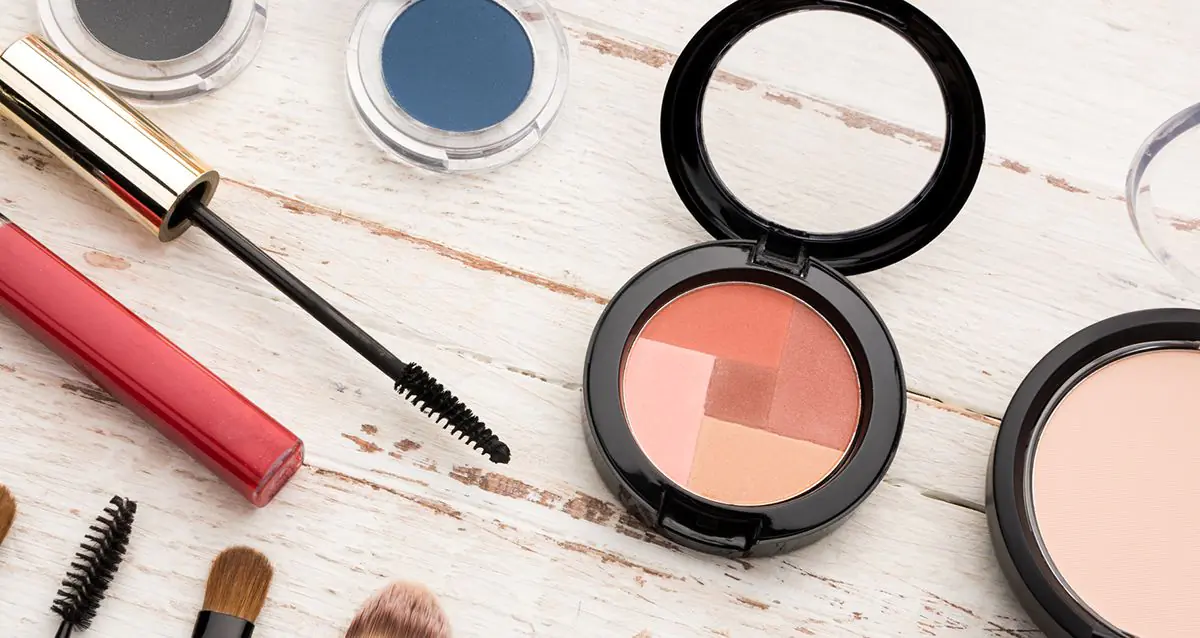
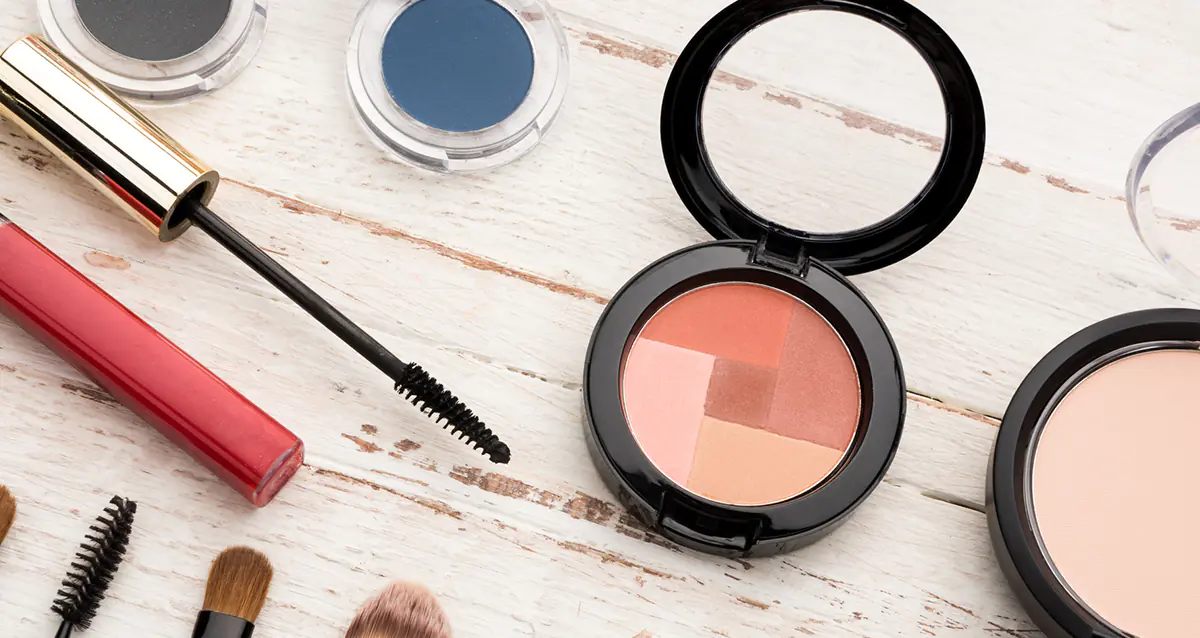
“The most important thing is to look completely natural; but this requires a lot of cosmetics.”
Calvin Klein
Are you constantly looking for the treasured inscription on the packaging: “Paraben-free”? Are they really that bad, or is it just another marketing ploy for sophisticated buyers? Before we pass our verdict on them, let's take a closer look at the properties of these ingredients, find out what scientists say, and understand whether it's worth spending more money on super-natural cosmetics without adding the notorious parabens.
In simple words, parabens are chemical preservatives with excellent antiseptic effects. They have been used for a very long time not only in the beauty industry, but also in the food industry and pharmaceuticals. They extend the shelf life of cosmetics and prevent the growth of bacteria.
Parabens are synthesized artificially or obtained from plants such as lingonberries, sorrel and cranberries. The results are quite natural parabens! So why were they classified as dangerous? The fact is that scientists, studying breast cancer, found a high concentration of parabens in tumors, linking this with the use of appropriate cosmetics, for example, roll-on antiperspirant.
It was just a hypothesis that was enough to turn half the world against parabens. But there is no official confirmation of the harm from this substance yet.
Among the advantages of parabens, one can note their stabilizing function. They allow you to maintain the desired consistency of any product and ensure the harmonious coexistence of various components within the composition. Although manufacturers highlight the absence of parabens in bold on the packaging, very little is required to perform its function. If we talk about the disadvantages of parabens, they can cause allergic reactions. Although, compared to essential oils and organic acids in cosmetics, which themselves are strong allergens, the likelihood of getting a negative reaction on the skin from parabens is much lower.

Most often, parabens are found in cosmetics containing water, that is, with a cream, liquid or gel texture. A humid environment promotes the growth of bacteria, and parabens prevent this.
Let's highlight several categories of cosmetics with parabens:
- foundation
- Concealer
- Mascara
- Lip gloss
- Liquid shadows
- Liquid highlighter and bronzer
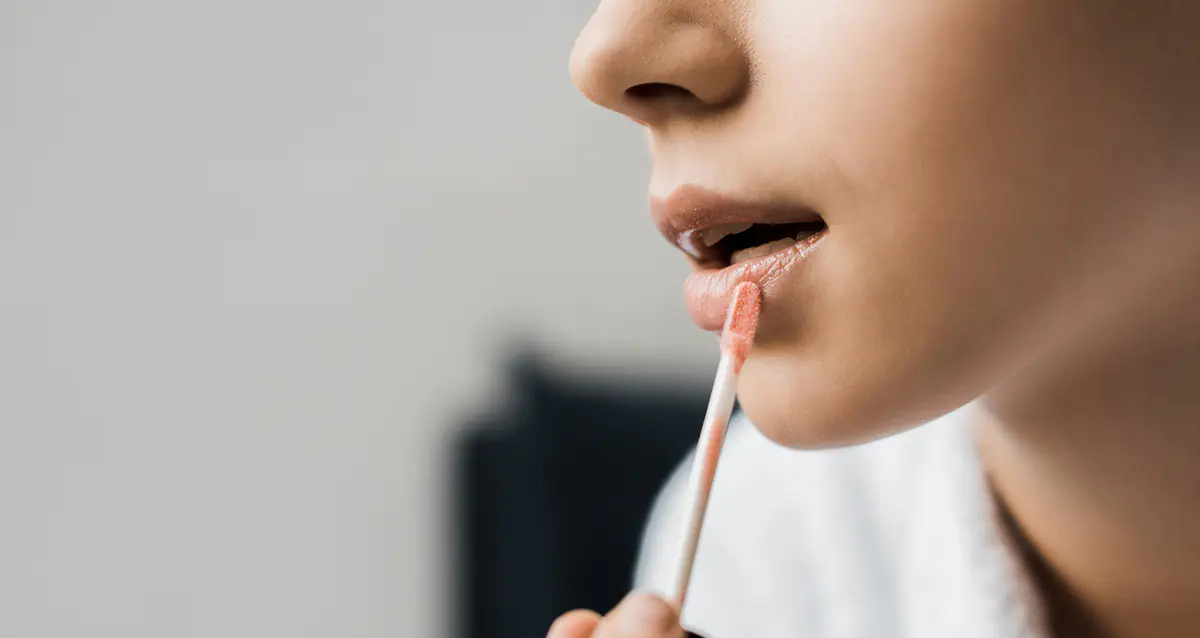
Whether to buy cosmetics with parabens or not is up to you. If you want to avoid risks, you can opt for organic products labeled paraben-free. But keep in mind that natural preservatives used to increase the shelf life of the composition are ineffective and can cause allergic reactions. And yet, 75% of cosmetics contain this controversial ingredient - paraben. And scientists have never proven its harm. We are inclined to believe that this is a clever advertising move and nothing more!
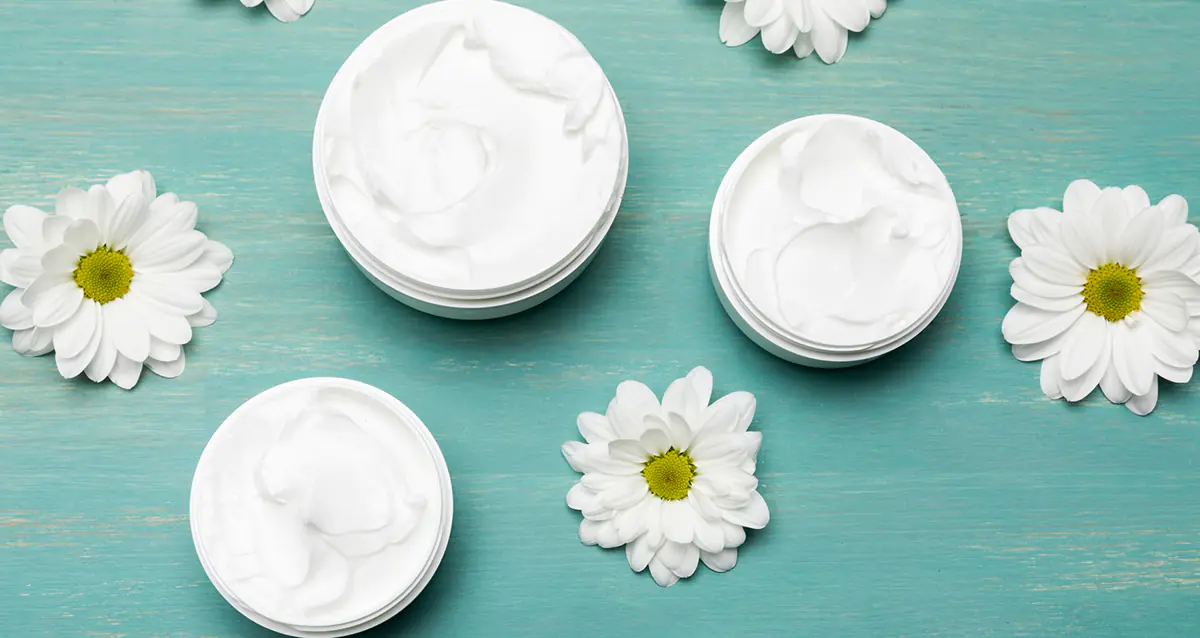
With or without parabens, all girls want to look beautiful and young. Therefore, read our review of eye creams that have proven their effectiveness. Maybe you'll find your favorite among them!
“No parabens!” - this slogan swept across the world after the publication of the results of laboratory studies on the effect of these substances on the incidence of breast cancer. In the wake of the scandals, the European Union urgently lowered the threshold concentrations of parabens in cosmetics and banned their use for children under 3 years of age. Manufacturers of organic cosmetics have completely abandoned these preservatives. Is it really so scary, is there any real harm? We will try to rehabilitate parabens, which have been used in more than 80% of cosmetic products for almost 100 years.
Origin of parabens
Esters of para-hydroxybenzoic acid give the name to preservatives parabens. Being derivatives of benzoic acid (and it was used for food preservation 400 years ago), they have bactericidal, bacteriostatic and antifungal effects. Parabens are active against most pathogenic microorganisms.
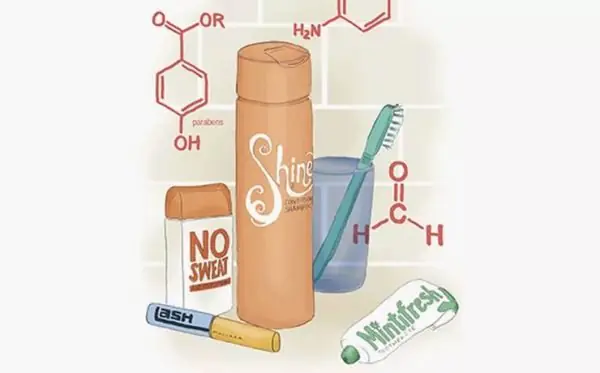
Parabens are found in some plants as a natural antimicrobial defense. Synthetic preservatives are obtained by reacting hydroxybenzoic acid with alcohols.
Why are parabens added to cosmetics?
Only synthetic parabens are used in the production of cosmetics. Their use makes long-term storage and use of the final product possible. In addition, they act as a stabilizer, maintaining the desired consistency of the cosmetic product and combining its components into one whole.
All cosmetics containing water without preservatives become unusable after three days. Imagine that microorganisms that have entered such a cream or lotion from the air after opening the package begin to actively multiply in a favorable environment. As a result, they would end up on our skin or mucous membranes, causing at least irritation and inflammation.
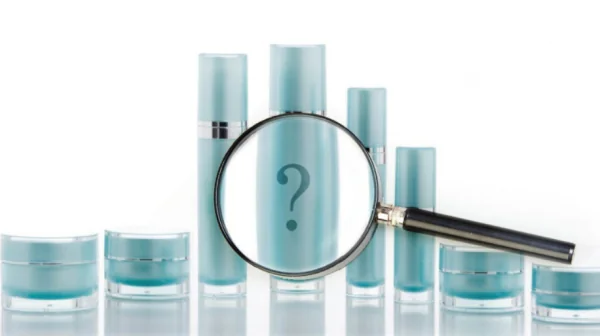
After high-profile scandals about the allegedly carcinogenic activity of parabens, they are still used in the production of cosmetics. They are used by European, American and even Japanese manufacturers. And Japan is known to have the strictest laws regarding public health.
Names of preservatives in the composition and their permissible quantities
The type of paraben is always written on the packaging of a cosmetic product. Some of them in the list of components may be indicated by a chemical name or as an additive under the letter E:
- methylparaben, E218;
- ethylparaben, E214;
- butylparaben;
- propylparaben, E216;
- isopropylparaben;
- isobutylparaben.
All face, body, hair, and even children's skin care products, as well as sunscreens, contain parabens as preservatives.
Decorative cosmetics contain:
- mascara;
- lipstick and lip gloss;
- liquid eyeliner and liquid shadows;
- concealers, highlighters, bronzers and foundations.
European and Russian manufacturers are guided by a preservative content of no more than 0.4% if one paraben is used, and no more than 0.8% if there are several of them.
Possible harm of parabens
Allergic reactions to parabens have been well studied and are rare. They are possible if the product is applied to damaged skin. But in practice, even people with chronic dermatoses tolerate such cosmetics well.
Methylparaben poses a certain danger if it interacts with sunlight. It is better not to use cosmetics containing it in the summer, as the skin reacts more strongly to ultraviolet radiation and the aging process intensifies.
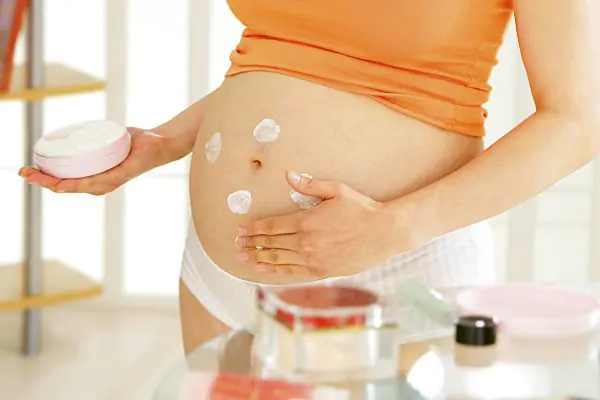
The use of cosmetics with parabens during pregnancy will not harm the unborn child, since the concentration of these substances is very small and they do not enter the systemic bloodstream.
the increase in fetal malformations is absolutely independent of whether a woman uses soaps, cosmetics with parabens and other skin care products. Your worries about this will do more harm than parabens.
Elena Berezovskaya, obstetrician-gynecologist
http://klubkom.net/posts/51028
In 2008, a scientific review was published, which presented the results of studies that proved that parabens in cosmetics are not capable of causing any harm to health, even with constant use. They do not accumulate in the body and are quickly eliminated, even if taken orally or administered intravenously.
Harm-benefit ratio
A scientific controversy that began about 20 years ago concerned the hormonal activity of parabens and their ability to accumulate in the body, causing breast cancer. However, a refutation followed in 2006. American and German scientists have not found a cause-and-effect relationship between cosmetics with parabens and an increased risk of cancer.
As for the ability of parabens applied to the skin to affect hormonal balance, it has been greatly exaggerated. In 2005, the results of studies were published confirming that the estrogenic activity of parabens in cosmetics is negligible and cannot affect hormonal levels and reproductive function. Thus, the possible harm from parabens is significantly inferior to their beneficial properties.
Parabens do not have any toxic effects on the human body when used in concentrations acceptable in cosmetics. Preservatives that are used instead of parabens are often poorly studied or are more harmful. For example, methylchloroisothiazolinone and methylisothiazolinone (Methylisothiazolinone, Methylchloroisothiazolinone, MIT) are considered highly allergenic. If you are still worried about the possible estrogen-like effect of parabens, then avoid products that contain Propyl-, Isopropyl-, Butyl-, Isobutylparaben.
Nina Sereeva, dermatovenerologist
https://news.rambler.ru/diy/38969131–10-dokazannyh-faktov-o-parabenah/?updated
If you are afraid of parabens
If you are not convinced by the research data and you still fear for your health, read the list of ingredients on the packaging of the cosmetic product and choose one that contains paraben with the lowest hazard class.
Table: list of parabens used in cosmetics
| Paraben | EWG SkinDeep hazard rating out of 10 points |
| methylparaben (E218) | 4 |
| ethylparaben (E214) | 4 |
| propylparaben (E216) | 5 |
| butylparaben | 7 |
| benzylparaben | 2 |
| isobutylparaben | 7 |
| isopropylparaben | 7 |
You can minimize possible harm by following several rules:
- do not leave makeup on your face overnight;
- do not use sunscreens with methylparaben;
- stop using the product if you experience side effects;
- pre-test cosmetics if they contain parabens that are new to you.
Paraben should be last on the ingredient list. Do not buy a product if the preservative is not at the end, but at the beginning or middle of the list; its concentration may exceed the permissible level.
Video: myths and truth about “dangerous parabens”
Using natural cosmetics or those containing parabens is your choice. However, their harm is greatly exaggerated. And we are convinced of this by the long-term practice of using parabens not only in the cosmetics industry, but also in the food industry.



